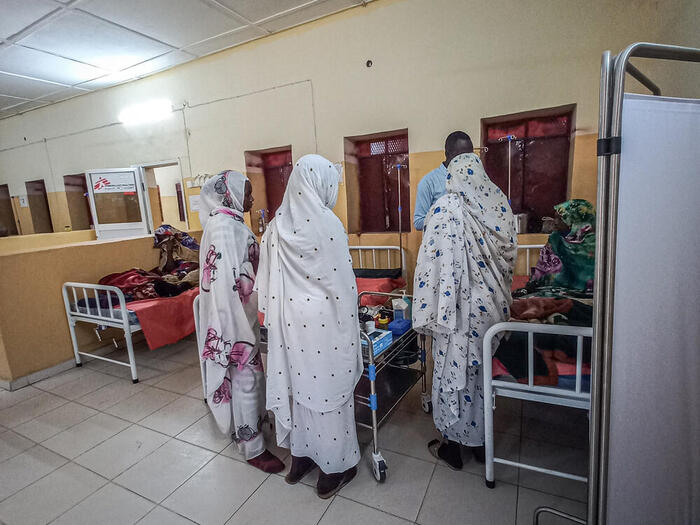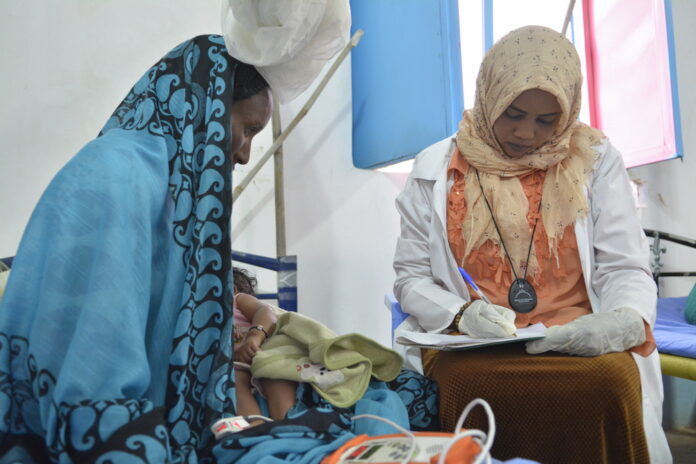By Clifford Akumu
Nairobi, Kenya: The international medical humanitarian organization Doctors Without Borders or Médecins Sans Frontières (MSF) has condemned the unacceptable harassment of its staff and violent looting of its medical premises, and supported facilities in Sudan.
Staff and patients are repeatedly facing the trauma of armed groups entering and looting MSF premises with medicines, supplies, and vehicles being stolen.
MSF officials report that the “shocking disregard for humanitarian principles and international humanitarian law” has impeded its ability to provide healthcare to people at a time when it is desperately needed.
Efforts to scale up medical activities since intense fighting broke out between the Sudanese military and the Rapid Support Forces on 15 April have been continually hampered by violence, aggressive armed incursions, looting, or armed occupation of MSF premises.
MSF runs medical projects in ten states in Sudan
The humanitarian doctors are now calling on all the warring parties to ensure the safety of medical personnel and healthcare facilities, to allow safe passage of ambulances, people seeking healthcare, and unimpeded movement for humanitarian workers, organizations, and supplies.
“We are experiencing a violation of humanitarian principles and the space for humanitarians to work is shrinking on a scale I’ve rarely seen before,” said Jean-Nicolas Armstrong Dangelser, MSF Emergency Coordinator in Sudan.
“After the looting of one of our medical warehouses in Khartoum fridges were unplugged and medicines removed. The entire cold chain was ruined so the medicines are spoiled and can’t be used to treat anyone.

We are shaken and appalled by these deplorable attacks. People are in a desperate situation and the need for healthcare is critical but these attacks make it so much harder for healthcare workers to help. It’s senseless.”
A recently announced ceasefire has helped quell the fighting, however, there have still been reports throughout the week of clashes, artillery fire, and air raids.
The war has killed hundreds and created a humanitarian and refugee crisis. Some 1.3 million people have fled their homes, either across borders or within the vast nation.
These attacks are not limited to MSF and are part of a wider trend of both warring parties disregarding civilian lives, infrastructure, and healthcare facilities.
As of 22nd May, the World Health Organisation has documented 38 attacks on healthcare since the conflict began.
Hospitals and healthcare workers are protected under international humanitarian law, but there are reports of the occupation of hospitals by armed groups which can weaken their protection putting patients, healthcare workers, and structures at risk.
This comes at a time when the conflict is having a dire impact on people in Sudan.
People in Khartoum, Darfur, and other places where fighting is most intense continue to suffer terribly amid ongoing violence, with people injured by gunshot wounds, sexual violence, stabbing, and explosions. Fighting, airstrikes, and other violence close to health facilities can leave both patients and staff too afraid to reach them.
Countrywide, people face shortages of food and drinking water, forcing people to be on the move to try to meet their basic needs. Access to humanitarian support and healthcare is vital but the Sudanese healthcare system is already struggling with a lack of essential supplies.
Administrative and logistical challenges are also impeding MSF’s medical activities, adds MSF. Moving supplies from one part of Sudan to another can be extremely difficult.
Similarly, although MSF was able to bring emergency teams into Sudan during the first weeks of the conflict, it has since been challenging to obtain permission for them to travel to project locations or to secure visas for additional staff.














